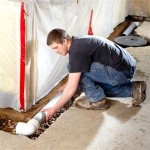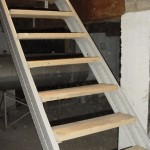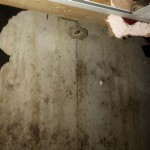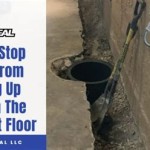Should I Insulate Basement Walls? Essential Aspects to Consider
Basement walls are often overlooked when it comes to insulation, but it's an essential aspect to ensure a comfortable and energy-efficient home. Here are some key aspects to consider when deciding whether to insulate your basement walls:
Benefits of Insulating Basement Walls
- Energy Savings: Insulated walls reduce heat loss, which can lead to significant savings on heating bills.
- Improved Comfort: Insulation creates a more stable temperature in the basement, preventing cold drafts and making it more comfortable to use.
- Moisture Control: Insulation can help prevent condensation and moisture problems, which can damage walls and create an unhealthy environment.
- Increased Value: Well-insulated homes are more valuable in the real estate market.
Types of Insulation Materials
There are several types of insulation materials available for basement walls, including:
- Fiberglass batts: Affordable and easy to install, but not as effective as other options.
- Rigid foam board: More expensive but provides excellent insulation values and is moisture-resistant.
- Spray foam insulation: Applied as a liquid and expands to fill all gaps and cracks, providing superior insulation.
Cost of Insulating Basement Walls
The cost of insulating basement walls varies depending on the size of the area, the type of insulation used, and the labor required. Generally, you can expect to pay between $1,000 and $5,000 for professional installation.
When to Insulate Basement Walls
It's recommended to insulate basement walls when the basement is being built or remodeled. However, it's not too late to insulate an existing basement, although it may require more effort.
DIY vs. Professional Installation
Insulating basement walls can be a DIY project, but it's important to have basic construction skills and knowledge. If you're not confident in your abilities, it's best to hire a professional.
Additional Considerations
Before insulating basement walls, consider these additional factors:
- Moisture protection: Ensure that the basement walls are properly sealed and protected from moisture before insulating.
- Vapor barrier: Install a vapor barrier on the warm side of the insulation to prevent moisture from entering the wall cavity.
- Ventilation: Provide adequate ventilation in the basement to prevent moisture buildup.
Conclusion
Insulating basement walls is an important investment that can improve energy efficiency, comfort, and the overall value of your home. Consider the factors outlined above to determine if it's the right choice for your situation. If you're unsure, consult with a professional contractor for guidance.

Three Ways To Insulate A Basement Wall Fine Homebuilding

How To Insulate Your Basement S Concrete Walls The Seattle Times

How To Insulate A Basement Wall Greenbuildingadvisor

How To Insulate Basement Walls True Value

Should I Insulate My Basement Constellation

Insulating Basement Walls With Fiberglass Batting Semigloss Design

How To Insulate Your Basement Like A Pro

Healthy Basement Insulation Systems Quality Built Basements Llc

Basement Insulation Maryland Northern Va Call Today

Insulating Basement Walls With Fiberglass Batting Semigloss Design
Related Posts







